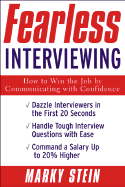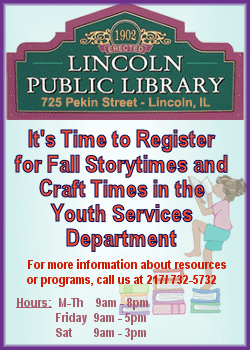|
Review by Richard Sumrall
In this difficult employment
environment it is imperative that job hunters seek every possible
advantage. One important advantage involves the interview with a
prospective employer. In her new book, "Fearless Interviewing,"
career development specialist Marky Stein shares the tips and
secrets that can give you the upper hand during this crucial phase
of the employment process.
According to Stein, "Interviews are not
like normal conversations. Being interviewed can be scary … the
interviewer is an authority figure who has all or most of the power
in the interview." Despite this apparent advantage Stein notes that
over 60 percent of interviewers have never been properly trained to
interview job applicants. She also points out, "It's likely that
you're actually going to be more prepared for the meeting than the
interviewer."
How does a person train himself or
herself to engage in a "fearless interview"?

"An
Assault Against Anxiety," "Building Your Skills Arsenal," "Q
Statements: Your Secret Weapon"
In order to reduce your anxiety toward
interviewing, you should recognize common interviewing fears (such
as being asked a question to which you don't know the answer, being
asked an illegal question, fear of appearing to brag), adopt a
strategy of free expression over memorization, and look at
interviewing as a learning experience of personal growth.
Building your skills arsenal includes
assessing your skills as well as honing your job-specific abilities
and personal traits.
"Research: What Separates the Hired from the Not Hired," "Winding Up
Your Strategy"
To gain an extra advantage and create
an initial favorable impression you should learn as much as possible
about the company. Sources of information can include the company's
website or annual report, the public library, and the company's
employees. When you conclude the interview, remember to offer your
references; a presentation packet containing the references and
other information is one way to increase your chances of success.
Most important is the first impression
you make with the interviewer. A positive introduction to any
interview begins with a good facial expression, attention to
clothing and grooming, a firm handshake (women should give and
receive the same handshake as men), the greeting, and your attitude.
[to top of second column in
this review]
|
 "Answering Interview Questions," "Negotiating Your Salary,"
"Following Up" "Answering Interview Questions," "Negotiating Your Salary,"
"Following Up"
You should always be prepared for the
various kinds of questions you will face in a job interview.
Although these meetings usually contain straightforward
question-and-answer sessions, be alert for the "questions behind the
questions." For example, when an interviewer asks, "What do you
think you will be doing five years from now?" they may actually be
concerned if you are willing to stay for a long period of time or
will leave shortly after receiving your on-the-job training. Beware
of illegal questions (such as marital status, disabilities, race,
religion), and remember it's perfectly acceptable for you to ask the
employer questions (usually at the conclusion of the interview).

Don't be afraid to negotiate on issues
such as salary, benefits and work conditions. It's beneficial to
your bargaining position to know your relative worth for your
position in the marketplace, to clarify what makes you worth more
than the initial offer, to determine your target compensation
package and to forecast how long you are willing to negotiate.
"Fearless
Interviewing" is an important book for anyone seeking first-time
employment, advancement up the career ladder or a career change. The
book is easy to understand and contains practical advice that can
help you land a new job through a successful interview. The three
sample interviews included in the book illustrate the concepts
emphasized by Stein. The section containing the practice questions
also provides a useful exercise prior to your interview. This book
is recommended for everyone seeking employment, especially those who
wish to alleviate the anxiety and fear associated with a job
interview.
[Richard Sumrall,
Lincoln
Public Library District] |

